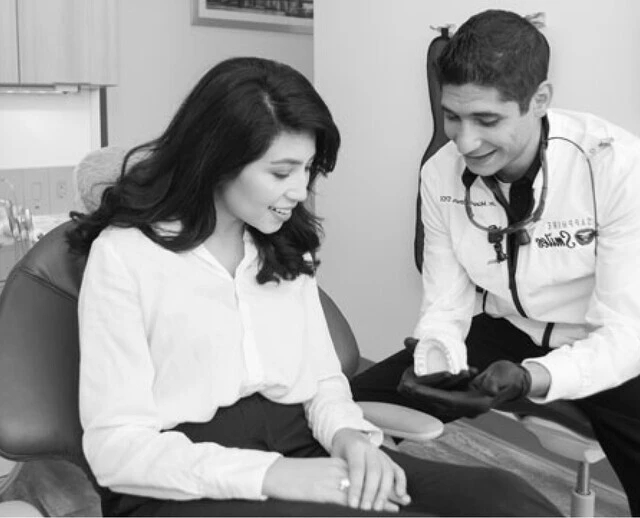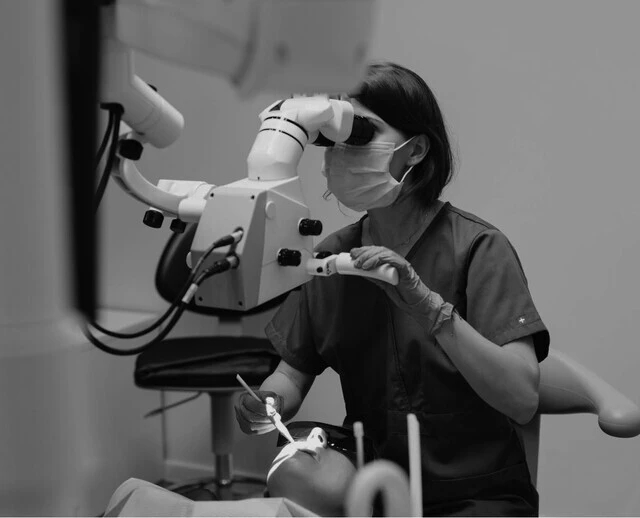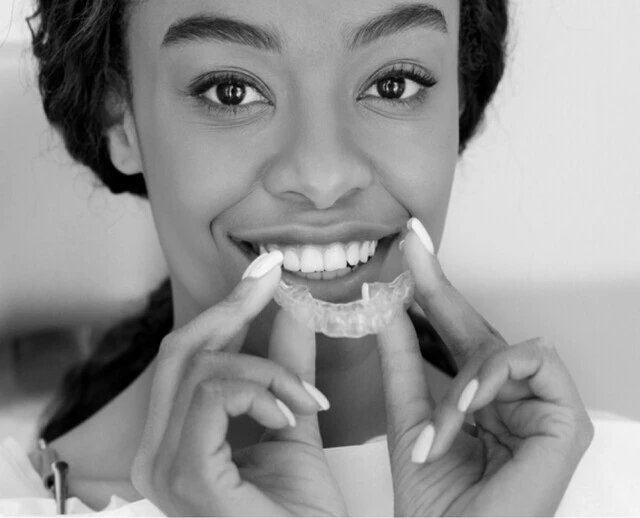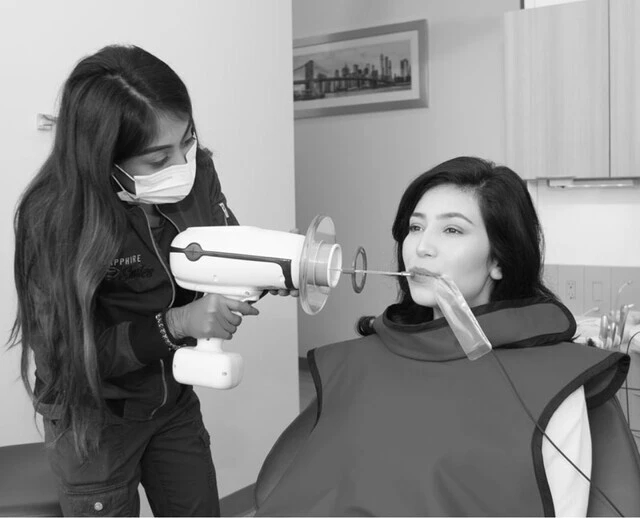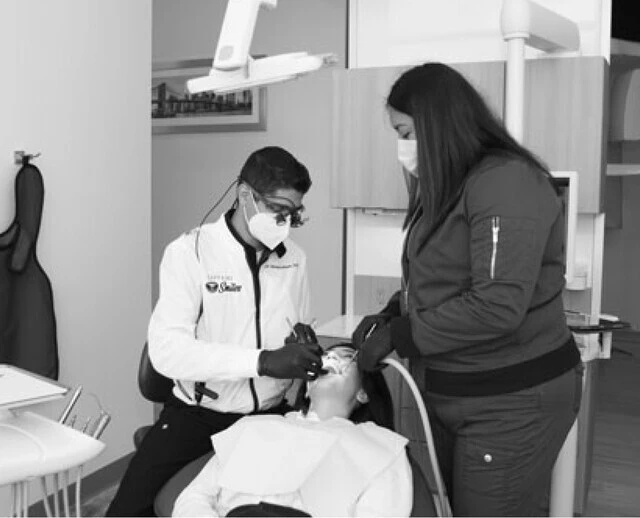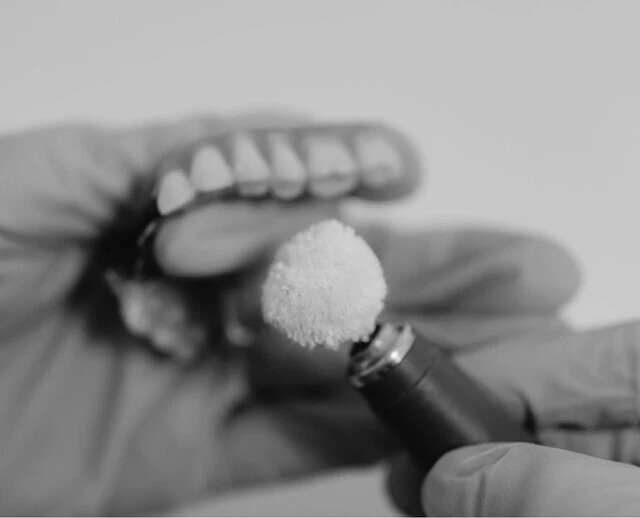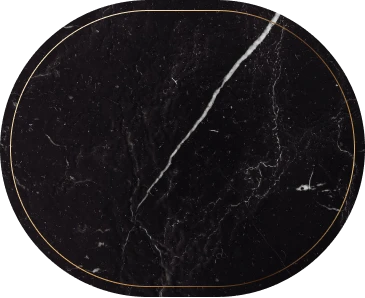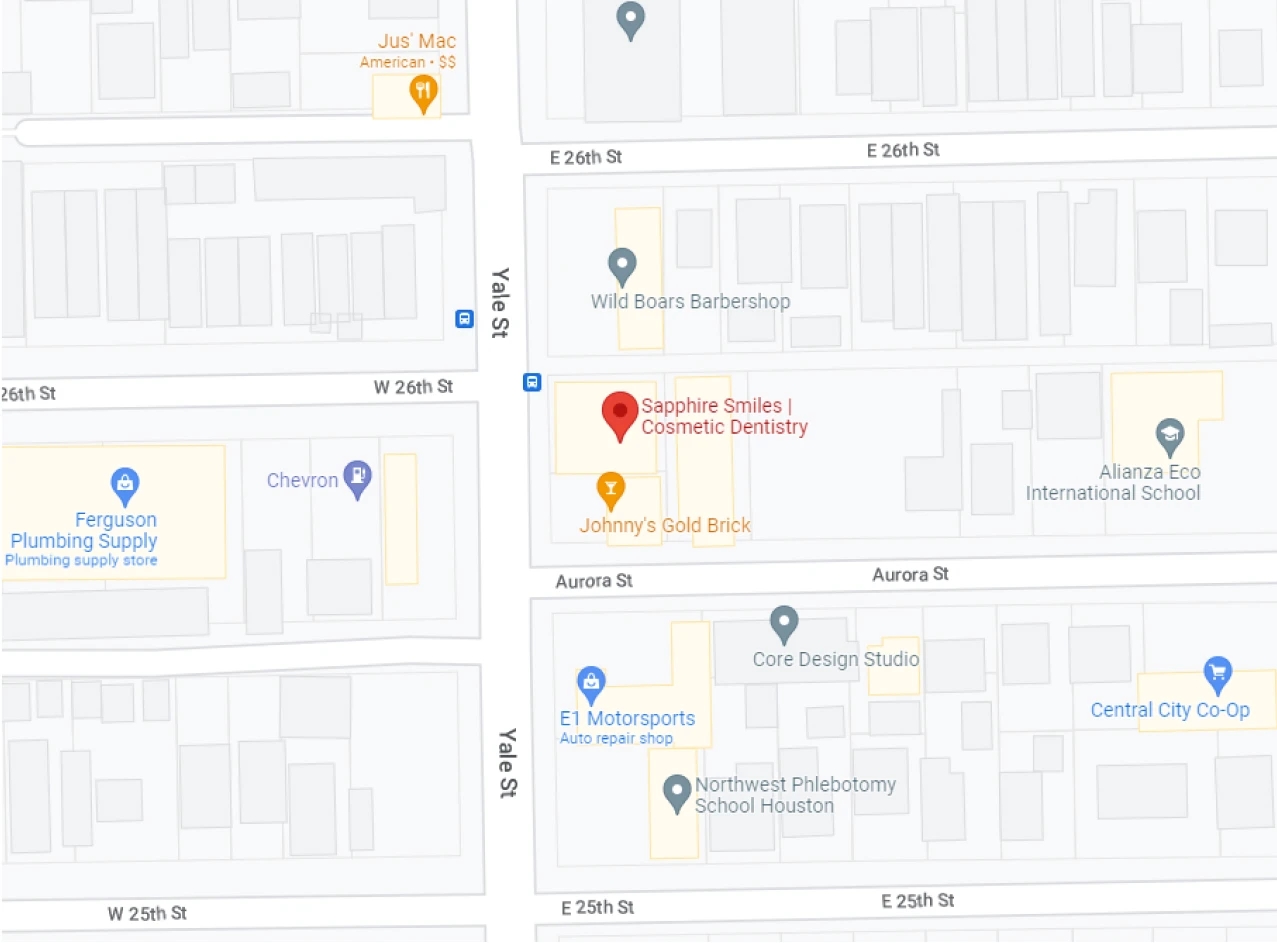How to Care for Teeth After Deep Cleaning
Learn how a deep cleaning helps combat gum disease and what you can do after your treatment to ensure the best outcome.

Contents
Key Points:
Deep cleaning deals with bacterial buildup below the gumline
Removing buildup slows down the progression of gum disease
You need deep cleaning when signs of gum disease are present
You may experience soreness and should avoid certain foods for 48 hours afterward
Gum disease can lead to sore gums, inflammation, and even tooth loss. However, modern prevention and treatment techniques are highly effective.
If your mouth shows signs of gum disease, you may need deep teeth cleaning to prevent it from progressing. After your cleaning, you can follow a few simple tips for oral health.
What Is Deep Cleaning for Teeth?
Deep cleaning is not the same as routine cleaning. During a typical dental appointment, you receive an examination and routine teeth cleaning. This routine cleaning focuses on removing plaque and tartar — hardened bacterial buildup that contributes to gum disease and tooth decay.
This routine cleaning, along with your at-home oral hygiene routine, effectively protects your teeth. However, the procedure only addresses buildup on tooth surfaces and between teeth. If gum disease starts to take hold, bacteria can build up below the gumline, which a routine cleaning can’t reach.
Deep cleaning removes bacterial buildup in those difficult-to-reach areas, helping stop the progress of gum disease. It consists of two steps: scaling and root planing. Together, they’re very effective in stopping the early stages of gum disease.
Scaling removes plaque and tartar from tooth surfaces below the gumline. Our hygienist will use special tools to reach deeper and eliminate bacteria from these crevices.
After scaling, the hygienist will use a different set of tools to carry out root planing. This procedure smooths the surface of your teeth below the gumline. The smoother surface is more difficult for bacteria to adhere to.
For more severe cases, intervention may be needed by our board-certified periodontist in the form of osseous surgery, which is surgical deep cleaning.
When Should You Have Deep Cleaning on Your Teeth?
If you come in for routine appointments every six months, your dentist can identify the signs of gum disease and recommend deep cleaning before the condition worsens.
You might notice some of the signs of gum disease yourself. If you do, reach out to your dentist at Sapphire Smiles to schedule an appointment. We can diagnose the issue, whether it is gum disease or another concern, and provide effective treatment options.
Some of the most common signs of early-stage gum disease include:
Persistent bad breath
Red or swollen gums
Tender gums
Bleeding gums
Pain while chewing
Visible gum recession
Any of these signs are worth reaching out to us. As gum disease progresses, you can experience more advanced gum recession, loose teeth, and even tooth loss. At that point, you will likely need additional treatment beyond deep cleaning to eliminate gum disease and restore any damage.
Deep cleaning isn’t a routine preventive treatment like routine cleaning or fluoride treatment. You only need deep cleaning when the signs of gum disease are present.
What Should You Avoid After Deep Teeth Cleaning?
Patients must know what to expect after deep cleaning to ensure the best outcome and long-term oral health. Deep cleaning is a straightforward procedure that takes just one visit, although your dentist will likely recommend a follow-up examination to ensure that gum disease isn’t taking hold again.
Before the procedure, you’ll receive a topical or local anesthetic to help you remain comfortable. Deep cleaning is not a painful procedure, but the experience may be uncomfortable for patients without this anesthetic.
Like any other procedure that requires local anesthetic, make sure not to eat while your mouth is still numb. You might accidentally bite your tongue or gums, which can cause injury.
Your gums and teeth will be sensitive immediately following your deep cleaning. Watch what you eat and avoid food or drink that may cause irritation. Hot or cold foods, hard or sharp foods, and anything that requires excessive chewing should be avoided for around 48 hours.
Over-the-counter pain medications are generally an effective solution for any pain or discomfort you may experience. Your dentist may prescribe antibiotics to help prevent infection, in which case they’ll provide specific instructions.
Do Gums Reattach After Deep Teeth Cleaning?
Most patients want to know what to expect after the procedure: How long does it take to heal after deep cleaning?
Your gums will reattach to your teeth during the healing process. You may experience a few days of sore or bleeding gums. However, you’ll be comfortable and essentially back to normal after that. The complete healing process can take several weeks, but you shouldn’t experience any symptoms as your gums heal and reattach.
Deep cleaning is a vital step in ensuring that your gums reattach after experiencing gum disease. Removing built-up plaque and tartar makes it possible for your gums to once again adhere to tooth surfaces.
Get the Care You Need for Gum Health
If you’re experiencing any symptoms of gum disease, Sapphire Smiles can provide the treatment you need in Houston, TX. We offer deep cleaning, along with other treatments for more advanced cases.
No matter your treatment needs, you can experience calm and comfort at Sapphire Smiles. Our spa-like environment, complete with warm towels and blankets, offers a luxurious, relaxing experience. Book an appointment today with our board-certified periodontist.

